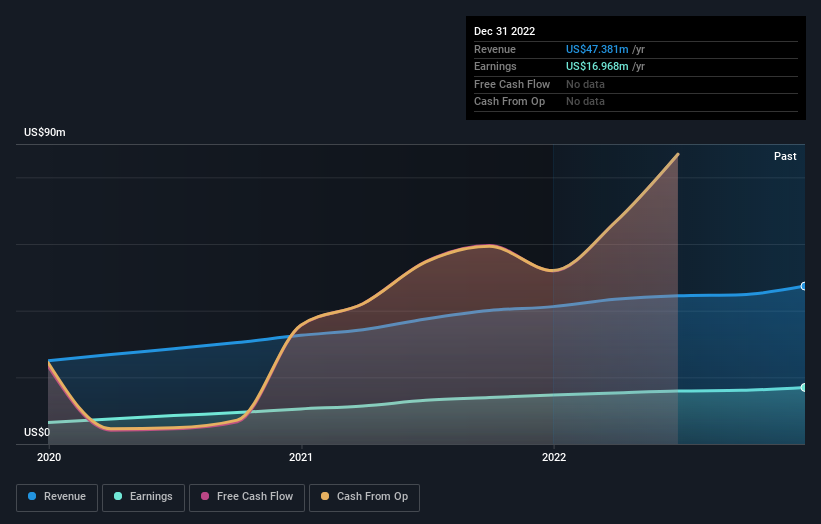Summit State Bank's (NASDAQ:SSBI) top owners are retail investors with 50% stake, while 31% is held by insiders
Key Insights
Summit State Bank's significant retail investors ownership suggests that the key decisions are influenced by shareholders from the larger public
49% of the business is held by the top 25 shareholders
To get a sense of who is truly in control of Summit State Bank (NASDAQ:SSBI), it is important to understand the ownership structure of the business. And the group that holds the biggest piece of the pie are retail investors with 50% ownership. In other words, the group stands to gain the most (or lose the most) from their investment into the company.
Meanwhile, individual insiders make up 31% of the company’s shareholders. Institutions often own shares in more established companies, while it's not unusual to see insiders own a fair bit of smaller companies.
In the chart below, we zoom in on the different ownership groups of Summit State Bank.
View our latest analysis for Summit State Bank
What Does The Institutional Ownership Tell Us About Summit State Bank?
Many institutions measure their performance against an index that approximates the local market. So they usually pay more attention to companies that are included in major indices.
We can see that Summit State Bank does have institutional investors; and they hold a good portion of the company's stock. This suggests some credibility amongst professional investors. But we can't rely on that fact alone since institutions make bad investments sometimes, just like everyone does. When multiple institutions own a stock, there's always a risk that they are in a 'crowded trade'. When such a trade goes wrong, multiple parties may compete to sell stock fast. This risk is higher in a company without a history of growth. You can see Summit State Bank's historic earnings and revenue below, but keep in mind there's always more to the story.
Hedge funds don't have many shares in Summit State Bank. Looking at our data, we can see that the largest shareholder is Marshall Reynolds with 11% of shares outstanding. Meanwhile, the second and third largest shareholders, hold 8.5% and 6.4%, of the shares outstanding, respectively. Furthermore, CEO Brian Reed is the owner of 1.9% of the company's shares.
On studying our ownership data, we found that 25 of the top shareholders collectively own less than 50% of the share register, implying that no single individual has a majority interest.
Researching institutional ownership is a good way to gauge and filter a stock's expected performance. The same can be achieved by studying analyst sentiments. As far as we can tell there isn't analyst coverage of the company, so it is probably flying under the radar.
Insider Ownership Of Summit State Bank
The definition of company insiders can be subjective and does vary between jurisdictions. Our data reflects individual insiders, capturing board members at the very least. The company management answer to the board and the latter should represent the interests of shareholders. Notably, sometimes top-level managers are on the board themselves.
Most consider insider ownership a positive because it can indicate the board is well aligned with other shareholders. However, on some occasions too much power is concentrated within this group.
Our most recent data indicates that insiders own a reasonable proportion of Summit State Bank. It has a market capitalization of just US$107m, and insiders have US$33m worth of shares in their own names. It is great to see insiders so invested in the business. It might be worth checking if those insiders have been buying recently.
General Public Ownership
The general public, who are usually individual investors, hold a substantial 50% stake in Summit State Bank, suggesting it is a fairly popular stock. This size of ownership gives investors from the general public some collective power. They can and probably do influence decisions on executive compensation, dividend policies and proposed business acquisitions.
Private Equity Ownership
With a stake of 6.4%, private equity firms could influence the Summit State Bank board. Some investors might be encouraged by this, since private equity are sometimes able to encourage strategies that help the market see the value in the company. Alternatively, those holders might be exiting the investment after taking it public.
Next Steps:
I find it very interesting to look at who exactly owns a company. But to truly gain insight, we need to consider other information, too.
I like to dive deeper into how a company has performed in the past. You can find historic revenue and earnings in this detailed graph.
If you would prefer check out another company -- one with potentially superior financials -- then do not miss this free list of interesting companies, backed by strong financial data.
NB: Figures in this article are calculated using data from the last twelve months, which refer to the 12-month period ending on the last date of the month the financial statement is dated. This may not be consistent with full year annual report figures.
Have feedback on this article? Concerned about the content? Get in touch with us directly. Alternatively, email editorial-team (at) simplywallst.com.
This article by Simply Wall St is general in nature. We provide commentary based on historical data and analyst forecasts only using an unbiased methodology and our articles are not intended to be financial advice. It does not constitute a recommendation to buy or sell any stock, and does not take account of your objectives, or your financial situation. We aim to bring you long-term focused analysis driven by fundamental data. Note that our analysis may not factor in the latest price-sensitive company announcements or qualitative material. Simply Wall St has no position in any stocks mentioned.
Join A Paid User Research Session
You’ll receive a US$30 Amazon Gift card for 1 hour of your time while helping us build better investing tools for the individual investors like yourself. Sign up here


